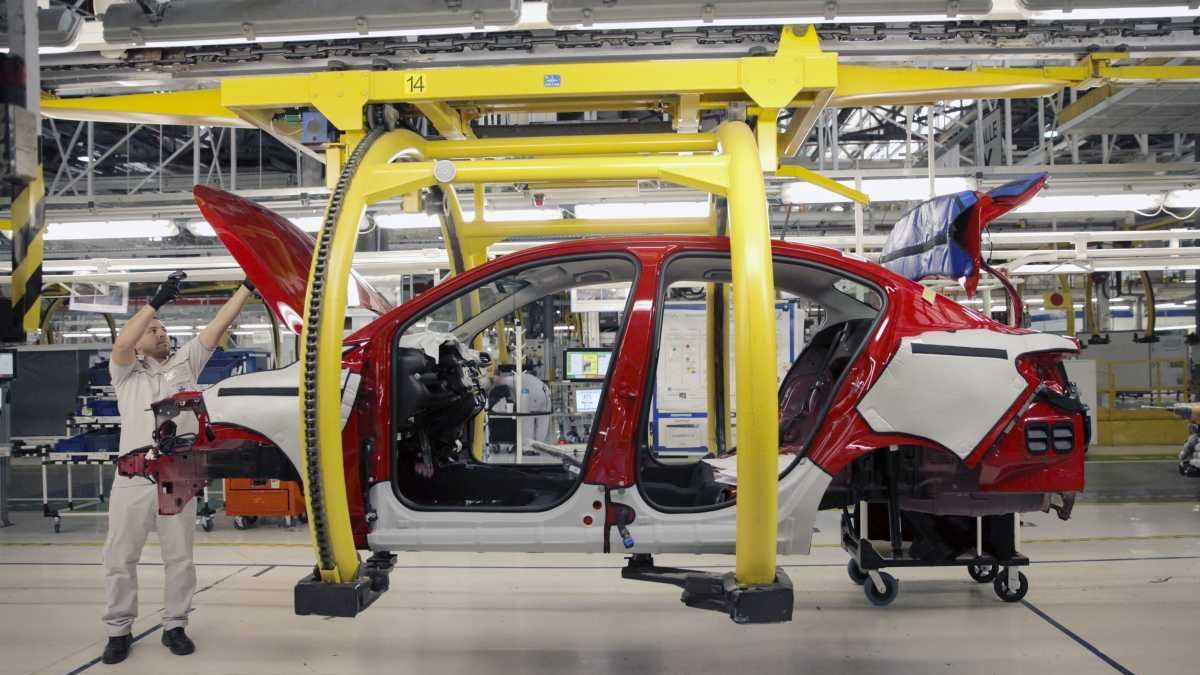While the Minister of Economy, Sergio Massalook for currency from the United States or Brazil, the economic team focuses on imports given the fragility of the reserves. In the last few hours, they told the oil industry that access to foreign currency for energy imports will go to 90 days. Meanwhile, there are open negotiations between Economy and the automotive sector to ask them to finance foreign purchases from almost 200 dayswith a repayment that could fall to the government that takes office in December.
Economists from the Juntos por el Cambio group are closely following the accelerated increase in commercial debt, and, low-key, they assure that it could be one of the conditions for disarming the exchange rate trap quickly.
The changes in the imports of gasoline and diesel for the oil sector were notified in a meeting that was held this Wednesday at the Central Bank, in which its head, Mr. Miguel Angel Pescethe Secretary of Foreign Trade, Matias Tomboliniand the Secretary of Energy, Flavia Royon. Executives from the companies attended from the business sector YPF, Raízen, Trafigura and Axion.
Official sources commented that before energy imports “they left in 24 or 48 hours”, while now they will do so in 90 days, so if the deadline starts now, they will fall after August, when the primary elections are held. With very low reserves and a historic drought, Massa seeks the greatest possible firepower to get through an election year with exacerbated political uncertainty.
From the economic team they ruled out that it is a “restriction”, but instead used the word “priorization”. At this point, they added that due to the drought, they seek to “optimize the use of foreign currency”, and indicated that a similar discussion took place with the medicines sector.
In addition, official sources indicated that the lack of dollars due to the drought is compounded by “a growing demand, which is why we need to order the consumption of foreign currency,” they reported. To support the argument, they assured that economic activity continues to show positive signs. In March, the INDEC EMAE indicated that activity grew 1.3% year-on-year, 0.1% monthly and 1.5% accumulated in the first quarter. “The demand for fuel grows 6%, and therefore we need to reorder the paymentthere are no restrictions,” the economic team reported. For companies, part of this increase arises from demand in border cities, as a result of the exchange rate gap and price delays, which increase 4% per month.
Along the same lines, the Ministry of Industry is holding talks with the automotive terminals grouped in the Association of Automotive Manufacturers (Adefa). One of the requests of the economic team is to be able to extend, even more, the terms of access to foreign currency. The “tacit” agreement on the use of the SIRA import system establishes that the automotive companies access foreign currency after 120 days. However, from the Government they are asking them to extend that period to 195 daysThat is, until after the December elections.
The negotiation is still open and both parties know that the worst scenario would be having to stop a terminal with more than 1,000 employees. The Government is betting that companies obtain longer-term financing through its Matrix house. However, in companies they ask themselves “how much more are they going to bear” before asking them to cut production. From any company they admit that given the low supply, and with a demand that is sustained, what is produced is sold.
In addition, another of the problems for companies whose deadlines are extended is calculating what exchange rate they are going to end up paying for those imports, much more so if it is after the elections, with the opposition proposing options such as unifying the rate of change or dollarize To the classic option of “putting on” in the futures market, today CFOs are betting on more “sui generis” strategiessuch as using the pesos that large companies have, which cannot be dollarized, and lending them in the market to other companies with an update of the “dollar linked” style. “Overadapting to the context”, describe it in the private sector. Companies that have nothing to do with a bank are already having financial gains from these loans on their balance sheets.
In any case, from the industry they know that they cannot extend the deadlines in the case of auto parts, because they are companies with less back. Today they are in 30 days for autoparts and in 45 days for parts of the terminals.
Source: Ambito




